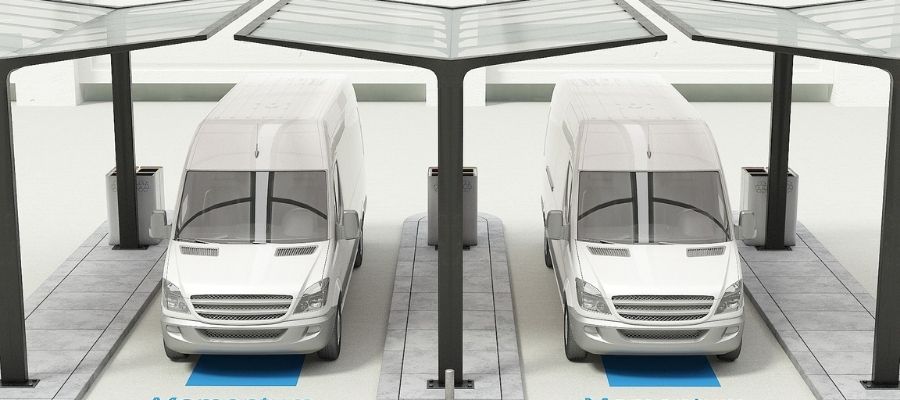🕒 Article read time: 2 minutes
First UK trial of wireless charging tech for vans to take place in Edinburgh

A wireless electric vehicle charging project, which has the potential to reduce the cost of decarbonising last-mile transport, has been awarded a £1.6m grant from Innovate UK.
It is hoped that the wireless charging trial for small commercial vans will demonstrate the potential to speed up the electrification of commercial vehicles across the UK, leading to a significant reduction in the logistics sector’s share of carbon emissions.
Wireless charging is a technology that allows electric vehicles (EVs) to recharge while parked on charging pads instead of using cables that need to be manually plugged in by a driver. Looking ahead, the absence of cables will mean that the tech is future-proofed for autonomous vehicles, which will not have drivers to plug them in.
DECARBONISING LAST-MILE LOGISTICS
The funding has been awarded to Heriot-Watt University, City of Edinburgh Council and Flexible Power Systems (FPS) to explore how wireless charging at shared logistics hubs can reduce the cost of decarbonising last-mile transport.
The UK’s first wireless charging hub for light commercial vehicles will be installed at Heriot Watt University’s Edinburgh campus, part of the Centre for Sustainable Road Freight, in early 2021 to service specially adapted vans from both City of Edinburgh Council and Heriot-Watt’s estates team. The technology has already been proven for mass transit applications and will be supplied by specialist firm, Momentum Dynamics.
SHARED URBAN INFRASTRUTURE
The consortium will also test how shared infrastructure and fulfilment equipment at urban hubs at large scale can enhance vehicle and staff productivity. This involves developing a large-scale simulation of the behaviour of charging hub users using real world data to understand the impacts on their business. If successful, it is hoped that both the infrastructure and the technology behind it could be adopted by fleets across the UK.
UNTANGLING COMPLEX CHALLENGES
Professor Phil Greening is a co-director of the Centre for Sustainable Road Freight, based at Heriot-Watt University. He said:
“While highly utilised shared infrastructure and collaboration have great potential to reduce the costs of decarbonising last-mile travel, there are complex scheduling and commercial trade-offs to be considered.
“The modelling tools and approaches developed in our Engineering and Physical Sciences Research Council (EPSRC) funded research at the Centre, combined with the collaboration we’ve undertaken with FPS over the last two years, will both be key to untangling these challenges and making sure this potential is realised.”
* https://www.hw.ac.uk/news/articles/2020/wirelesschargingtech.h
Published On: 05/11/2020 14:01:11

Comments Section
If you are a Logistics UK member login to add comments.